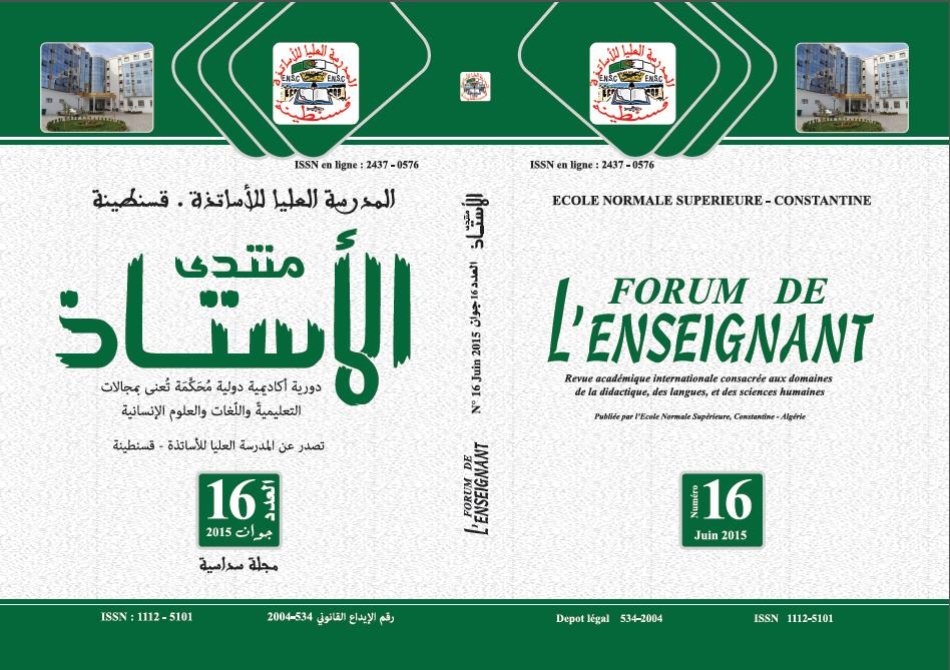Narration from the old journey to the new novel “Confessions of Askram” by Ezzeddine Mihoubi as a model
Abstract
This study stands on the technique of multiple new novelistic forms, on the one hand, and the hypothesis of its benefit in one of its forms from the journey known in all ancient cultures, including Arab culture, on the other hand, in a qualitative shift in which the narrative smoothly passes from the culture of the ancient journey to the technique of the new novel, which is a smart investment in which the novel makes a connection between itself and the journey to increase the richness of its universal literary project. We have chosen to clearly demonstrate this connection a representative sample: the novel "Confessions of Askram" by Ezzeddine Mihoubi. The journey is almost an integrated cultural project, as travel is a culture that combines providing knowledge derived from this enjoyable and open experience, and fictional literature as a mold into which it is often poured - moving from the experimental to the artistic, with a beautiful combination that combines the truly realistic and the very strange. The simple idea may consider the "journey" an ancient cultural and artistic heritage, but those familiar with the creative scene today find it a present art; the journey can be absorbed by literature as a basic story in some literary writings or events distributed within its folds as an experience and a story, and this is due to the flexibility enjoyed by contemporary literary genres, most notably the "novel"; With its many forms of writing, and with the broad horizons it has opened for it and for other literary and non-literary types and genres, which grow in its lush shade, and flourish in the bosom of its exciting content. The Arab novel in general and the Algerian novel in particular, since its dawn in the modern era, has resorted to the journey in its seasons of migration to the north (referring to Tayeb Salih), and in its sailing against the winds of the south (referring to Abdel Hamid Ben Hadouga).





